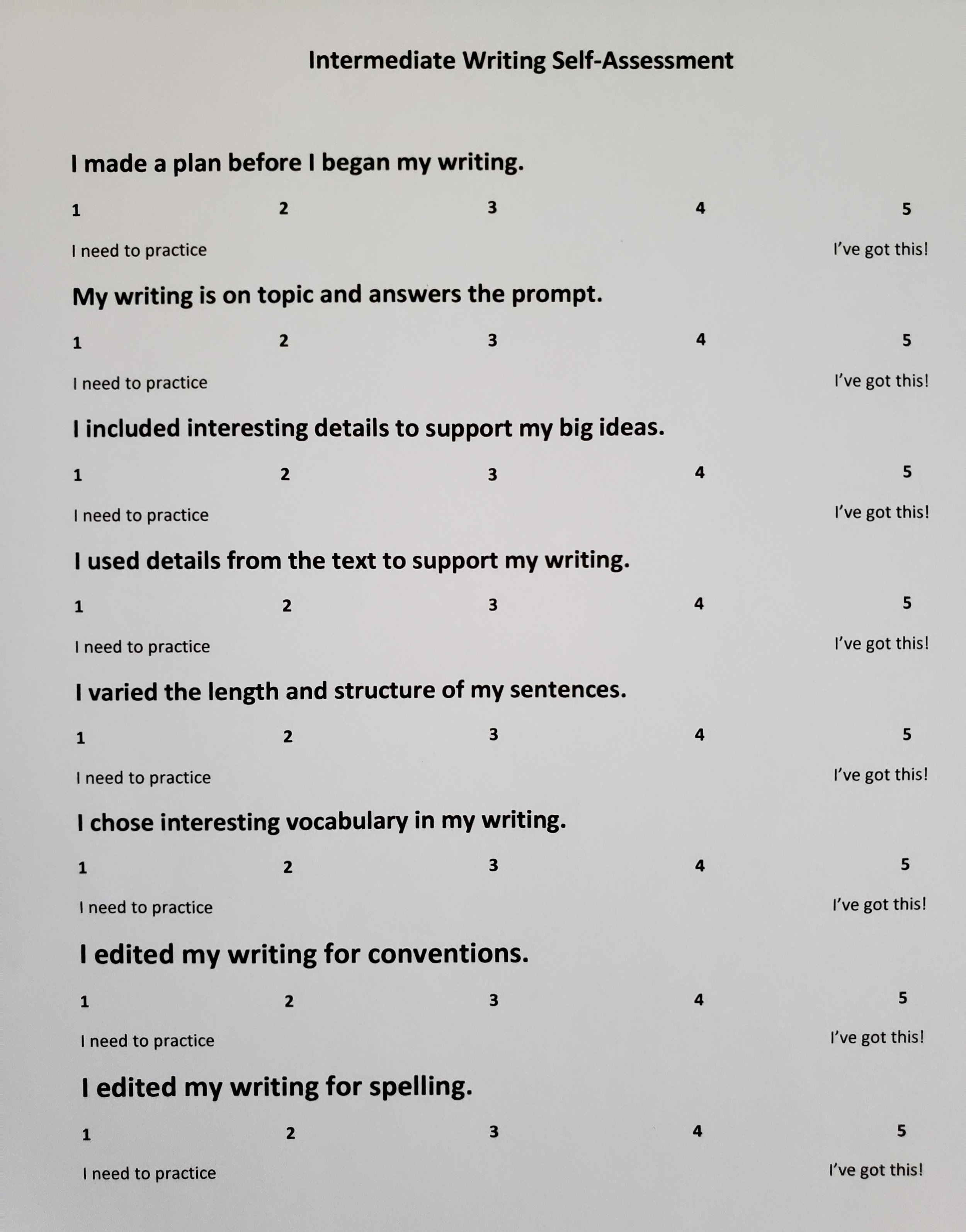As the final weeks of school approach, teachers and students alike may feel overwhelmed with assessments. From naming letters to writing essays on state assessments, children are being asked to demonstrate what they have mastered throughout the school year. The number of assessments continues to rise. As a result, during this busy time of year, too often assessments are given, graded and then filed away, with no thought to either their purpose or the information they provide.
Before asking students to complete an end-of-year writing assessment, pause and consider the task’s purpose. Assessment is defined as a gathering of information about student learning. While formative assessments are given frequently and used to adjust instruction, a summative assessment is given to judge the quality of student work. This quality judgement can and should be helpful for both student and teacher.
As writing is a process, students’ progress should be assessed on the process. Most importantly, students should be able to assess themselves on each part of the process and recognize their progress. Before giving students a final written assessment, consider these factors:
1) What do you want students to be able to do?
Clearly define the skills you want students to exhibit:
- Are you wanting students to write in complete sentences?
- Are you assessing students’ ability to gather ideas and create a plan?
- Are students expected to read a text and gather appropriate information?
2) How will your students know they have met their learning goal?
Provide students clear expectations and targets. This can be done through:
- Complete prompts
- Specific rubrics
- Anchor charts
- List of skills being assessed
3) How will you help students accurately measure their own writing growth?
Encouraging students to measure their own learning growth is a powerful tool. Provide students with their original beginning of the year writing assessment. Identify specific writing skills for students to evaluate in their own writing. Some possible skills include:
Primary Students
- Are my letters formed correctly?
- Did I put spaces between my words?
- Did I write in complete sentences?
- Did I plan my writing?
- Is my writing on topic?
- Did I choose interesting vocabulary?
Intermediate Students
- Did I plan my writing?
- Is my writing on topic?
- Did I include interesting details to support my big ideas?
- Did I use details from the text to support my writing? (If this is a requirement.)
- Did I vary the structure of my sentences?
- Did I make interesting word choices?
- Did I carefully edit my writing for conventions?
- Did I carefully edit my writing for spelling?
As students write their new piece, they can refer to their beginning of the year writing, looking for ways to improve. After their writing is edited and revised, they can self-assess their end of year writing, using the same criteria they used to evaluate their beginning of the year writing.
4) Make the writing assessment useful to you and/or next year’s teacher.
Determine which type of writing will provide you with the most useful information.
· What personal writing goals did you have for the school year? How can you organize the assessment to analyze those goals? Perhaps you are wanting to use your curriculum more when teaching content material. You may want students to respond to a prompt such as the following:
We have just finished reading the book What To Do With A Problem. As a group, we have brainstormed various strategies people can use when they have a problem. Write an opinion essay, stating which three strategies work best for you.
· Perhaps your school has a writing improvement plan for all grade levels. This plan may include writing informational essays, writing in response to text, writing narratives, etc. Design an end-of-year assessment which will provide the next year’s teacher important information.
Think about the information you want to gather about your students’ writing skills. Design a prompt that will best give you that information. Whether you want to compare writing using the same prompt from the start of the school year, determine how well students can write a narrative, or analyze your students’ ability to respond to text, create a writing task which addresses your assessment needs.
Whatever choice you make, think about ways to make the assessment manageable, informative and useful to both you and your students.


